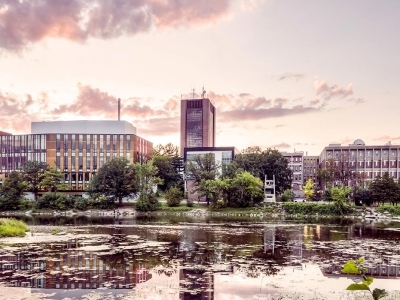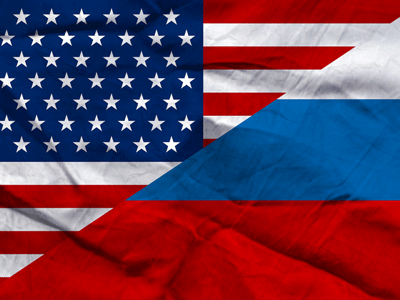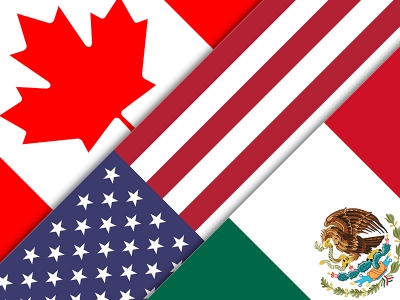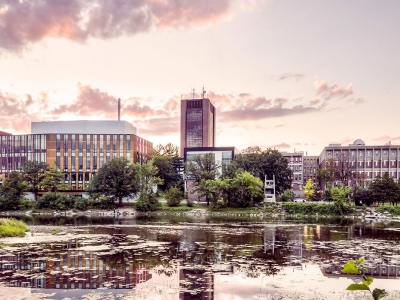Carleton and Concordia universities take a leading global role in “Worlding Public Cultures: The Arts and Social Innovation”
Carleton University’s Birgit Hopfener and co-principal investigator (PI) Ming Tiampo, and Alice Ming Wai Jim from Concordia University, are leading members of the international Transnational and Transcultural Art and Culture Exchange (TrACE) team that won a Social Innovation Grant from the Trans-Atlantic Platform for the Social Sciences and Humanities (T-AP) for their collaborative research project, Worlding Public Cultures: The Arts and Social Innovation.
“Only 10 of 75 teams were successful in receiving this grant internationally, and that says something about the quality of the proposal,” said Carleton President Benoit-Antoine Bacon. “It is an extremely timely endeavour during a period of acute global and societal challenges. TrACE aims to be a network that focuses on transnational and transcultural perspectives. It is a very ambitious, multi-institutional, international project that will re-examine and reframe what we refer to as global.”
The project was launched last November at Carleton prior to the team’s Trans-Atlantic Platform grant success, through the first of four international conferences. Funded by the Social Sciences and Humanities Research Council (SSHRC), the Worlding the Global: The Arts in the Age of Decolonization conference launched the project with research on the connections between global and Indigenous perspectives on art that will inform the project as it moves to Amsterdam, London, Berlin/Heidelberg and Montreal.
Worlding Public Cultures seeks to change discussions about our globally interconnected yet conflicted world through art, exhibitions, conferences and writing about art and its cultural, historical and socio-political realities. It seeks to tell new stories from multiple regional perspectives about our transnational and transcultural present, our shared and sometimes difficult past and to imagine new ways of living together in the future.
The project draws upon the concept of “worlding,” which describes global history from multiple perspectives rather than narrating it from a single dominant standpoint. This bottom-up approach to global art history demonstrates the rich cultural and intellectual fabrics of global migrations and movements rather than focussing on the effects of top-down global capitalism, imperialism, and colonialism.
Working with universities, museums and other cultural spaces, the project reimagines cultural and educational institutions in order to better use them as agents of social and political change that increase the understanding of global complexities.
“In this time of uncertainty and hyper-change, we need more than ever to think of the anticipatory — how to anticipate the future, to move from emergency to emergence,” said Jim, professor in Art History. “The arts are crucial to the efforts of imagining what the world’s future can be.”
The TrACE network brings together an extraordinary range of geographical and interdisciplinary perspectives from scholars, curators, artists and early-career researchers. In November, Carleton, Concordia University, University of the Arts London and Heidelberg University signed a memorandum of understanding formalizing the TrACE partnership to enable student and faculty mobility in addition to research collaborations.
“This agreement makes it possible for students to consult with professors across the network, and we are working on building structures that allow students to study across the network—this opens very exciting opportunities for all of our universities,” said Hopfener, associate professor of Art History.
“Worlding Public Cultures allows us to share some of the insights that we have developed in Canada, working at the intersection of multiple cultures, languages, diasporas and settler-colonial and Indigenous histories,” said Tiampo. “Equally, each of our partners brings different expertise to the table, enabling us to compare and adapt approaches. In other words, we hope to use art to change the way people feel and think about the cultural impacts of globalization at a time of rising nationalism.”
The Canadian team consists of Hopfener, Ruth Phillips, Carmen Robertson and Tiampo from Carleton, Jim, May Chew and Maya Rae Oppenheimer from Concordia, Analays Alvarez Hernandez from Université de Montréal, and Barbara Clausen and Édith Anne Pageot from Université du Québec à Montréal.
International partners and team members include: co-PI Paul Goodwin from University of the Arts London, Chiara de Cesari from Amsterdam University, Monica Juneja and Franziska Koch from Heidelberg University, Toshio Watanabe from the University of East Anglia and Wayne Modest from Vrije University. In addition to the core academic team, the project collaborates with major research institutions and art museums, including ici Berlin, the National Gallery of Canada, Tate Modern and Tropenmuseum Amsterdam. SSHRC and the Fonds de recherche du Québec – Société et culture (FRQSC) provided the Canadian portions of this international grant.
Media Contact
Steven Reid
Media Relations Officer
Carleton University
613-265-6613
Steven.Reid3@carleton.ca
Follow us on Twitter: www.twitter.com/Cunewsroom
COVID 19 Updates: https://newsroom.carleton.ca/coronavirus-covid-19/messages/
Wednesday, April 22, 2020 in News Releases
Share: Twitter, Facebook



